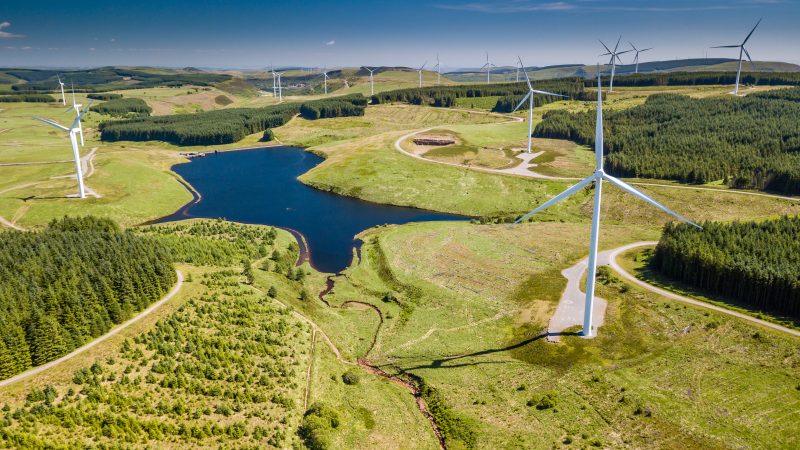
On Thursday, the government will be publishing its much-anticipated energy security strategy, and with it comes an important opportunity to tackle the cost-of-living crisis, the climate emergency and our reliance on Russian gas and oil. There is almost universal agreement that renewable energy must become a bigger part of our energy mix to improve our energy security, bring down bills and meet our climate targets. But what is less discussed is who will own and profit from this next generation of renewable energy schemes.
For the government, the answer seems evident: private ownership and private reward. One of the key goals of Boris Johnson’s recent visit to Saudi Arabia was not just to increase the flow of Saudi oil, but to seek Saudi investment in renewable energy projects in the UK. Renewable energy is the future and getting cheaper by the year. But if we do not diversify ownership, we’re at risk of recreating the present – where a small handful of companies and countries own our energy production, while hoarding record profits.
In the co-operative movement, we know there is an alternative. Over the past decade, from wind farms in the valleys of Wales to solar panels on the rooftops of Brixton, we’ve seen a quiet revolution take place with communities coming together to build and own their own community energy schemes. Community-owned energy schemes grew rapidly in the first half of the last decade, but the past few years have seen tax breaks halted, subsidies slashed, and red tape put in the way of community energy projects. Time and again, the government’s warm words for the sector have not been followed with concrete action or funding.
There has never been a better time to invest in clean, cheap, renewable energy produced and owned right here in the UK. Unfortunately, the government is allowing its only remaining support for the sector – the rural community energy fund – to come to an end this month. That’s why, as part of our plan for our community energy, the Co-operative Party have been pushing for the government not only to save this vital scheme, but to expand it into a national community energy fund that covers both rural and urban projects, as well as heat and retrofit schemes.
Community energy gives us the opportunity to challenge our assumptions about energy. The government is supposedly considering offering financial incentives, from direct payments to cheaper bills, to those who live near new energy farms. But communities deserve better than a one-off sweetener – they should have the opportunity to have an ownership stake in local energy projects.
The government’s starting position is that communities will always object to living near a renewable energy farm, but the community energy sector has long shown that isn’t the case. As the EAC rightly highlighted, community energy is uniquely placed to increase uptake on what were once thought to be controversial technologies such as onshore wind. There are communities that want to build and own their own wind energy projects right now, but are hindered by planning rules and lack of funding.
Community energy schemes are vital to ensuring that everyone has equal access to green energy. Community initiatives to boost energy efficiency are one way of achieving inclusion for all residents, from homeowners to renters. Retrofitting homes will be crucial to helping to decarbonise the UK and this is an area where many community energy schemes are already investing with positive results.
This kind of engagement is key to tackling the climate crisis. To reach our net zero targets, we need everyone in the UK to be thinking about where their energy comes from and how their energy is used. When given the opportunity, communities have shown that they want greater control over their energy production and supply. Creating a sense of collective purpose and empowering people to take ownership works because people can see the tangible benefits for themselves and their area.
With the cost of living crisis bearing down on communities across the UK, speed is of the essence in tackling this issue. The long-delayed strategy will supposedly focus largely on nuclear, but it takes years to get new reactors online. Renewable energy is quicker and cheaper to build, and there are communities willing and ready to build and own renewable energy projects right now. Investing in community energy could be one of the fastest ways to bring bills down and make a difference for families suffering through this cost-of-living crisis.
Our current energy crisis is, in essence, a crisis of energy ownership. We are seeing the results of a system where our energy is primarily produced and owned abroad, and that is why as a party we will keep fighting for the community energy sector and to put our plan for community energy into action. The transition to renewable energy should be an opportunity to ensure our energy production isn’t in the hands of profiteering shareholders or Russian oligarchs, but instead owned directly by communities across the country.




More from LabourList
‘Labour’s quiet quest for democratic renewal’
‘Labour promised to make work pay. Now it must deliver for young people’
‘Council Tax shouldn’t punish those who have the least or those we owe the most’